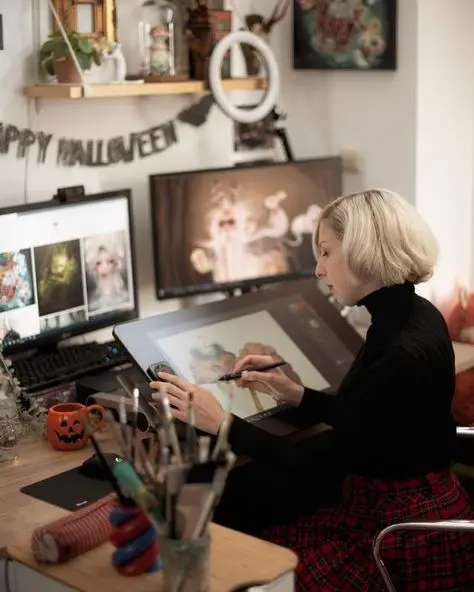
Crafting Your Path to Success: The Power of Game Industry Portfolios
- Admin
In the competitive and ever-evolving landscape of the game industry, a strong portfolio stands as a cornerstone for success. Whether you're a budding game developer looking to break into the industry or a seasoned professional aiming to advance your career, a well-crafted portfolio is your ticket to showcasing your skills, experience, and creativity to potential employers, clients, and collaborators. Let's explore the importance of game industry portfolios and uncover strategies for creating a standout portfolio that leaves a lasting impression.
1. Showcase Your Best Work:
Your portfolio is your opportunity to showcase your best work and demonstrate your skills and expertise to the world. Whether it's game projects you've worked on, concept art you've created, or code samples you've written, your portfolio should highlight the projects and achievements that best represent your abilities and talents. Select a diverse range of projects that showcase your versatility and proficiency in different aspects of game development, from programming and design to art and sound.
2. Quality Over Quantity:
When it comes to portfolio content, quality always trumps quantity. Instead of overwhelming potential employers with a laundry list of projects, focus on showcasing a select few projects that are polished, well-executed, and demonstrate your capabilities as a developer or artist. Choose projects that you're truly proud of and that best showcase your skills and creativity, even if it means including fewer items in your portfolio.
3. Tailor Your Portfolio to Your Audience:
When crafting your portfolio, it's essential to consider your audience and tailor your content accordingly. If you're applying for a specific job or working with a particular client, customize your portfolio to highlight projects and skills that are relevant to their needs and interests. Research the company or individual you're targeting and showcase projects that align with their industry focus, aesthetic preferences, and technical requirements.
4. Provide Context and Documentation:
In addition to showcasing your work, provide context and documentation that helps potential employers or clients understand the thought process behind your projects and your role in their creation. Include descriptions, concept art, design documents, code samples, and any other relevant materials that provide insight into your creative process, problem-solving abilities, and contributions to the project. This not only demonstrates your professionalism but also helps differentiate you from other candidates.
5. Keep Your Portfolio Up to Date:
The game industry is constantly evolving, with new technologies, trends, and best practices emerging at a rapid pace. To stay competitive, it's essential to keep your portfolio up to date with your latest work and achievements. Regularly update your portfolio with new projects, skills, and experiences, and remove outdated or irrelevant content to ensure that your portfolio accurately reflects your current abilities and interests.
6. Seek Feedback and Iterate:
Finally, don't be afraid to seek feedback on your portfolio from peers, mentors, or industry professionals. Constructive criticism can help you identify areas for improvement and refine your portfolio to better showcase your talents and skills. Iterate on your portfolio based on feedback and continuously strive to elevate the quality and effectiveness of your presentation.
Conclusion:
In conclusion, game industry portfolios are essential tools for showcasing your skills, experience, and creativity to potential employers, clients, and collaborators. By showcasing your best work, focusing on quality over quantity, tailoring your portfolio to your audience, providing context and documentation, keeping your portfolio up to date, and seeking feedback and iteration, you can create a standout portfolio that sets you apart and opens doors to exciting opportunities in the game industry.
